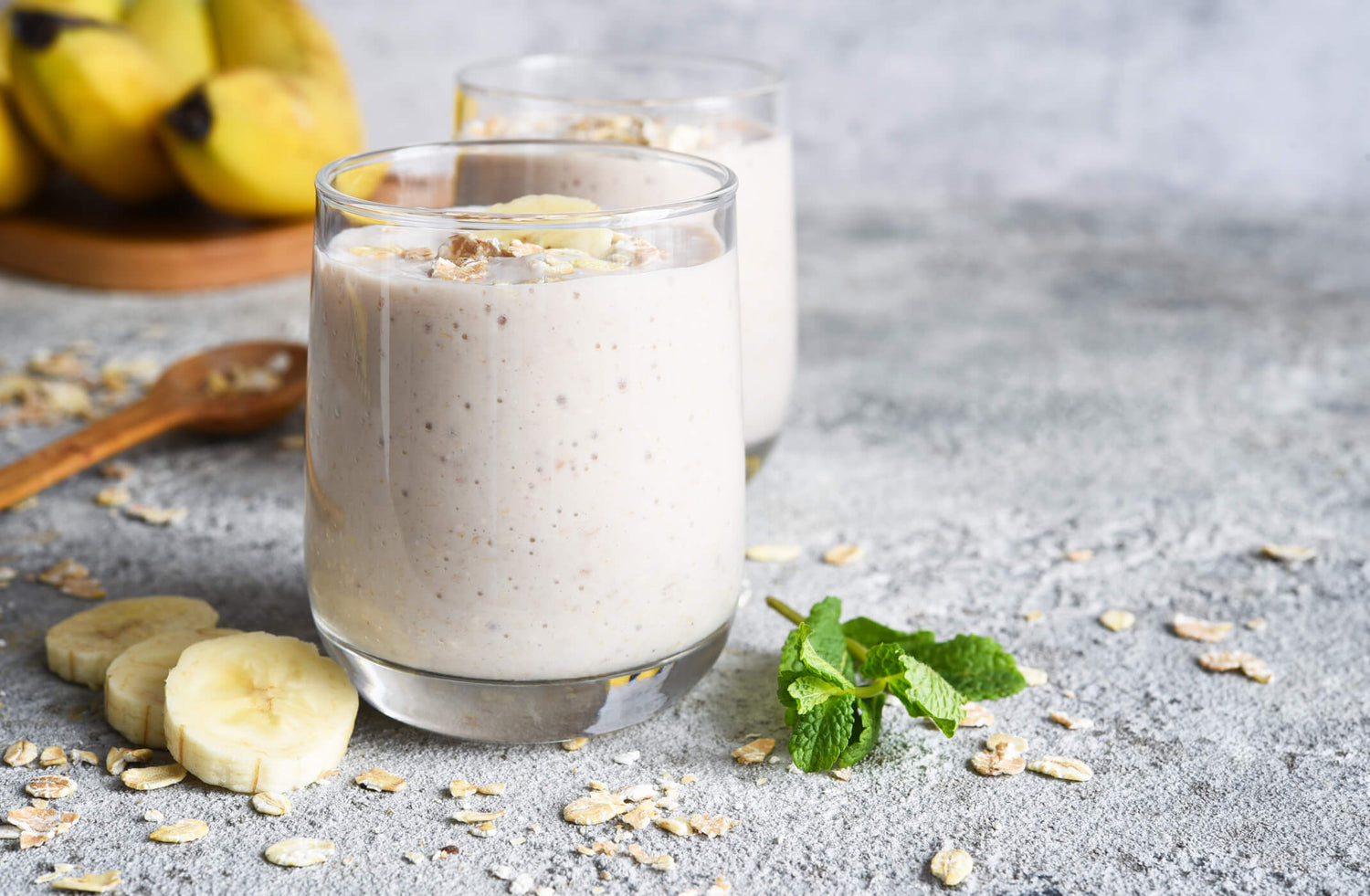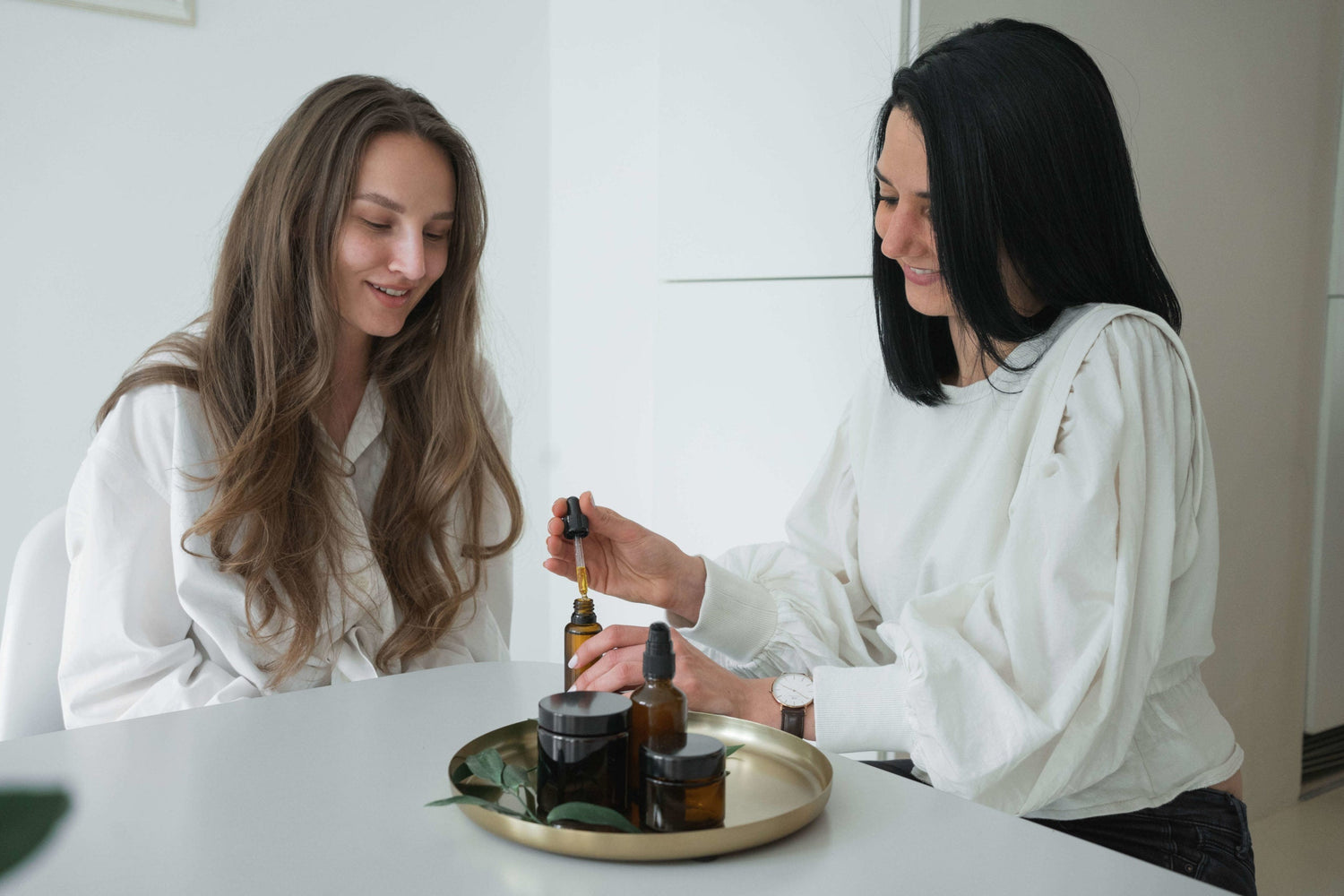Table of contents
- What do skin and intestinal mucosa have in common?
- How are gut health and skin health related?
- Why does the gut microbiome play an important role in skin health?
- What is psoriasis?
- What influences the appearance of the skin and the intestinal mucosa?
- What has a positive effect on the appearance of the skin?
What do skin and intestinal mucosa have in common?
The intestinal mucosa and skin both have contact with the environment and protect the organs from harmful substances. Both are home to fungi, viruses and especially bacteria and can become inflamed. The gut and skin contain nerve fibres and communicate through hormones, the immune system and metabolism.
How are gut health and skin health related?
Studies have shown that an imbalance in the gut microbiome can be linked to atopic dermatitis, acne, psoriasis and rosacea. The intestinal mucosa contains a mucus that serves as a protective layer against Leaky Gut, among other things. When leaky gut occurs, the connections between mucosal cells in the small intestine become loose, allowing toxins to pass through and enter the bloodstream.

Gut health affects skin health.
There are many different types of intestinal inflammation. Collagenous colitis, for example, is a rare chronic inflammation of the intestinal mucosa. Neurodermatitis (atopic dermatitis), for example, is a chronic inflammatory skin disease whose typical features can be itching, eczema and chronic or relapsing disease. (1-2)
Why does the gut microbiome play an important role in skin health?
If the microbiome (intestinal flora) is imbalanced, this can have a negative effect on the skin’s appearance. Skin, microbiome and immune system are in constant interaction (3).
The diagram illustrates the interactions between the immune system, the skin and the microbiome. The barrier of healthy skin prevents potentially harmful microorganisms from multiplying. If one suffers from atypical dermatitis, for example, staphylococci proliferate. The result of the microbiome (gut flora) imbalance is a worsening of the skin’s appearance. (3)

Interactions between the immune system, the skin and the microbiome (3).
What is psoriasis?
2-3% of adults suffer from psoriasis. The body sees its own immune cells as the enemy and attacks them. Psoriasis can have many different causes, including the microbiome. (4) Moon et al. showed that people with psoriasis have a 3-fold higher risk of developing Chron’s disease and, conversely, people with Chron’s disease have a 7-fold higher risk of developing psoriasis (5). Chron’s disease is a chronic inflammatory bowel disease where the mucous membrane of the entire digestive tract from the oral cavity to the anus can become inflamed.
What influences the appearance of the skin and the intestinal mucosa?
Diet plays an important role because it affects the microbiome on the one hand and the appearance of the skin on the other. Trans fats, simple sugars, alcohol and fast food have a negative influence on the intestinal mucosa and skin. Omega-6 fatty acids, such as those found in sunflower oil, also promote inflammation.
What has a positive effect on the appearance of the skin?
Selenium, zinc and turmeric can protect the skin from oxidative damage. Omega 3 fatty acids, such as those found in hemp seeds, and oatmeal (resistant starch) support wound healing processes (5).

Turmeric soup has a positive effect on the skin due to its anti-inflammatory properties.
Of course, skin care also plays an important role, because heavily perfumed soaps or creams, especially with synthetic fragrances, can upset the balance just as much. So often less is more. pH-neutral cosmetics can have a positive effect on the skin flora.
Our gut flora influences our health and especially our skin health. The myBioma microbiome analysis allows you to learn about your microbial composition and which bacteria live in your gut. We also look at the gut-skin axis! You get an overall picture of your gut universe and significant insights into your health. Depending on your results, you will receive dietary recommendations, e.g. to optimise your diversity & species richness. Learn more!
References
- Wollenberg, A., et al., Consensus-based European guidelines for treatment of atopic eczema (atopic dermatitis) in adults and children: part I. J Eur Acad Dermatol Venereol. 32(5): p. 657-682. (2018).
- Langan, S.M., A.D. Irvine, and S. Weidinger, Atopic dermatitis. Lancet, 396(10247): p. 345-360. (2020).
- Blicharz, L., et al., The Influence of Microbiome Dysbiosis and Bacterial Biofilms on Epidermal Barrier Function in Atopic Dermatitis—An Update. 22(16): p. 8403. (2021).
- Zeng, J., et al., Critical role of environmental factors in the pathogenesis of psoriasis. J Dermatol. 44(8): p. 863-872. (2017).
- Moon, J.M., et al., Incidence of Psoriasis in Patients with Inflammatory Bowel Disease: A Nationwide Population-Based Matched Cohort Study. Dermatology, 237(3): p. 330-337. (2021).
- Kanda, N., T.et al. Nutrition and Psoriasis. International Journal of Molecular Sciences, 21(15). (2020).







